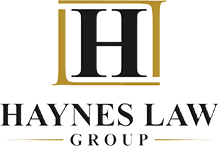After handling thousands of foreclosure cases in Florida, I have witnessed pretty much every scenario one could imagine. Therefore, when I see a foreclosure surplus case, it’s something that I can assess and sum up very efficiently. After the dozens of complex Florida foreclosure surplus cases I have handled, I have developed three essential keys I execute each time I am hired by a former homeowner.
1) What county is the Florida foreclosure surplus case in?
Each Florida county handles the procedural aspect and execution of foreclosure surplus funds differently. Therefore, addressing the county is the first step. For instance, if there is a Miami foreclosure surplus case, I will approach it differently than a Tampa foreclosure surplus case. Some ask, “does it really make a difference, substantively?” The answer is, absolutely yes! For example, the counties within the second court of appeals and the counties within the fourth court of appeals have different time frames to claim surplus funds, per two recent cases. Further, the way a Florida foreclosure surplus lawyer approaches a surplus case in a specific county can determine how much and how fast one receives their foreclosure surplus funds. This first key is essential before taking on a surplus case.
2) Were you the homeowner at the time the lis pendens was filed? Or are you an heir of the estate of a former homeowner?
Why does this matter? This matters because the chance one has to claim the funds, legally, is dependent on the above question. In previous blogs, I have discussed, at length, why one should not assign their foreclosure surplus rights to a foreclosure surplus recovery company. This second key is a perfect example of why. I have seen lazy attorneys file surplus motions that fail to claim the proper statute and case law for the homeowner or heir of the homeowner. In fact, in several instances, a poorly drafted motion (due to laziness or lack of knowledge) can cost one the opportunity and expediency of collecting the funds.
After handling several foreclosure surplus cases, I understand how to handle a surplus case if one is a former homeowner, or if one is an heir to a former homeowner. Each of the two situations requires a different legal and procedural approach.
3) The third and final point is a) when was the sale? B) when was the certificate of title issued? and 3) are their subordinate lien holders/ other parties trying to claim the funds?
The reason I ask both a and b is because several Florida counties determine the “sale date” to be different. The law in a few counties mandate that the sale does not occur on the actual auction, but at the certificate of title being issued and filed. This is a prime example why it’s so important to consult an experienced foreclosure surplus lawyer! Further, the type of subordinate lien holder, if any, will also determine the course of action and law that needs to be pursued.
These are three of the main keys that I assess and execute for a foreclosure surplus case.
If you need a Miami Foreclosure Surplus Lawyer, Ft. Lauderdale Foreclosure Surplus Lawyer, West Palm Beach Foreclosure Surplus Attorney, Orlando Foreclosure Surplus Attorney, Tampa Foreclosure Surplus Lawyer, Fort Myers Surplus Lawyer, Sarasota Foreclosure Surplus Lawyer, Pasco County Surplus Lawyer, Lake County Foreclosure Surplus Lawyer, Lakeland Foreclosure Surplus Lawyer, Lee County Foreclosure Surplus Lawyer, Tavares Foreclosure Surplus Lawyer, Manatee foreclosure surplus lawyer, Broward Foreclosure Surplus Lawyer, Miami-Dade Foreclosure Surplus Attorney, Volusia County foreclosure Surplus Lawyer, or a Jacksonville Foreclosure Surplus Lawyer, Haynes Law Group will represent a homeowner in any county in Florida!


